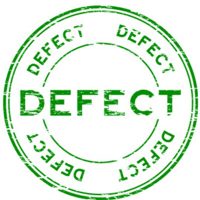Product Labels and the Failure to Warn

It seems that almost every product we bring into our home has some kind of label on it. The language on the label is written in almost illegibly small type, and some of the instructions are seemingly so obvious, it may discourage people from even reading them.
But knowing how to use any kind of product—from a medicine, to a piece of equipment at the gym to an electronic device—is vitally important and if you don’t follow the instructions on those small labels, the company that made the product that injured you, could end up blaming you.
Overkill or Necessary?
Because you can be blamed for not following the instructions on a product, the motivation for companies is to put as many warnings on products as possible. While warnings are good, and keep us safe, they can admittedly seem like overkill—we probably don’t need to be reminded not to eat inedible products.
But sometimes, those warnings contain instructions that aren’t so common sense—warnings that if not followed, could cause the product’s user harm.
Remember that the manufacturer of the product knows way more about the product than the consumer does. That’s why it’s incumbent on product manufacturers to warn consumers of danger, especially those that would not be known or obvious to the general public.
Common Items Can be Dangerous
And don’t assume that because a product is sold in the neighborhood drug store, that it is safe. Many products are safe for the way they are supposed to be used, but can be deadly if misused, accidentally or purposely. And manufacturers even have to warn you about anticipated misuse.
For example, you may know not to ingest laundry detergent, but the warning still should be on the label, that ingesting it is dangerous or even deadly.
When it comes to medicines, manufactures have to warn you of side effects, and sometimes, of dangerous interactions with other common drugs, and even have to warn you that the medicine may negate the effects of other medicines that you may be taking. Those warnings are sometimes on the label, and sometimes on a separate label packaged with the medicine.
Harmless, By Themselves
Often, side effects themselves are harmless—unless they are combined with something else.
So, drowsiness may seem harmless, but because so many people take medicine and drive, the warning of drowsiness must be on the label. The same goes for side effects that could make things like depression or anxiety conditions worse.
Even though the product itself is working as anticipated, and there is nothing defective about the product, a manufacturer can still be liable for product liability, for the failure to fully and clearly and adequately warn consumers of dangers of their products.
Injured by a defective product or item? Call the Knoxville personal injury attorneys at Fox Farley Willis & Burnette, PLLC, today to see how we can help you with your injury case.
Sources:
the-hospitalist.org/hospitalist/article/209074/business-medicine/labeling-medication-warnings/
unitedadlabel.com/blog/post/the-consequences-of-using-improper-medical-labels/
